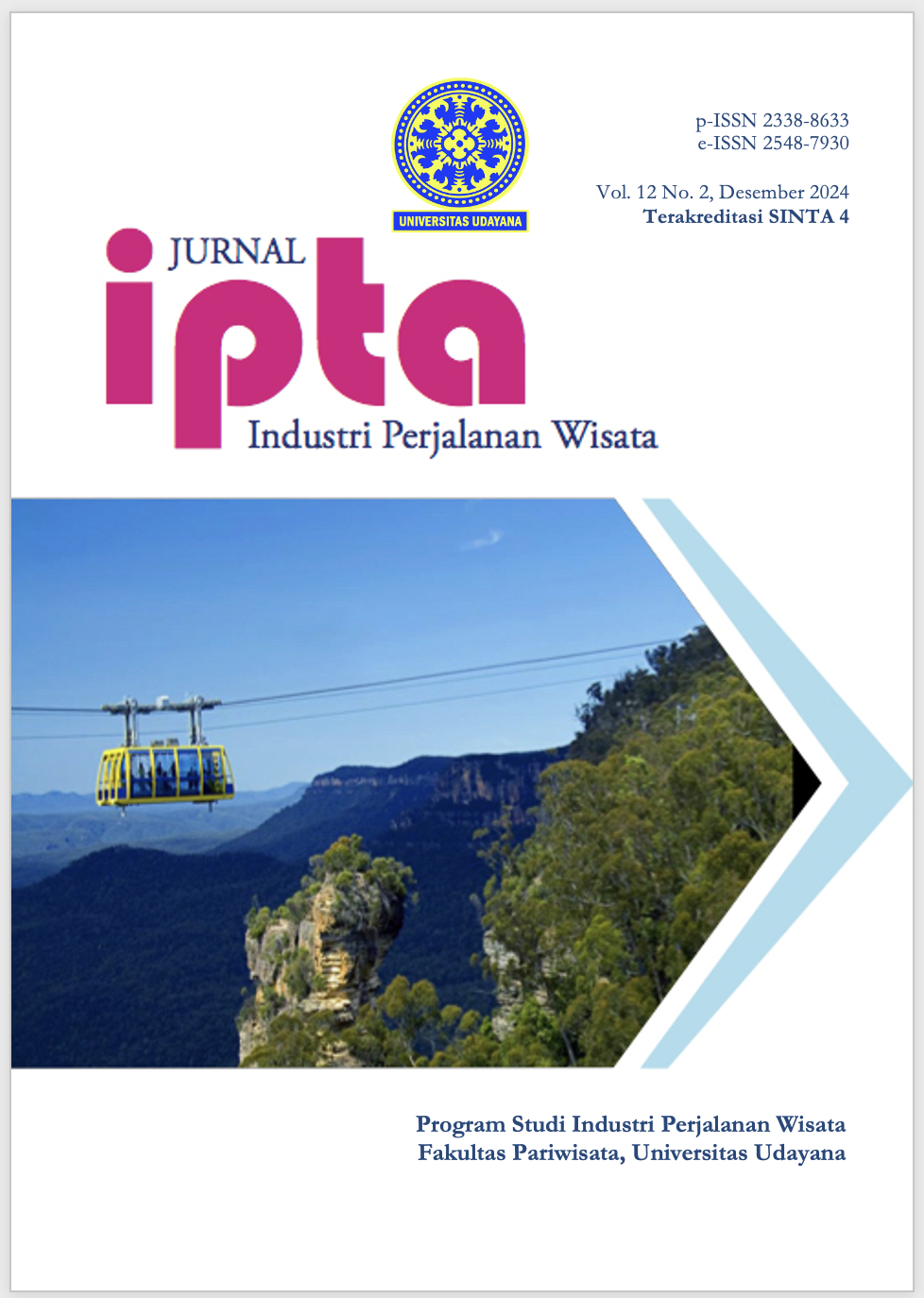KIDS CLUB: CHILD-FRIENDLY HOTEL MARKETING STRATEGY
Abstract
Chilld-friendly hotels are one of the choices of family tourists in choosing accommodation while on vacation to Bali with a span of more than one night. The choice of child-friendly hotels is inseparable from the desire of parents to provide facilities and activities that can provide new experiences and exciting ways to take advantage of vacation time. The facilities offered are integral to the world of children such as outdoor activities related to physical and indoor activities related to children's concentration abilities. The activities offered by the hotel are painting, coloring, storytelling, drawing, watching movies, and outdoor activities, namely parks made with the concept of adventure. Hard Rock Hotel Bali is one of the hotels that provides a kids club with full activities divided by age and supporting facilities provided. Kids Club is an activity for child tourists offered by the hotel to provide children with activities to fill their free time while at the hotel. Kids Club is the initial consideration for family travelers before deciding which hotel to stay at. Kids Club by Hotel is considered a product that can be sold to increase the interest of family tourists accompanied by hotel room facilities such as family rooms, connecting rooms to rooms decorated with ornaments that children like. Kids Club: This child-friendly hotel marketing strategy (a HardRock Bali Hotel case study) will be: 1) Becoming a child-friendly hotel pilot. 2) Promote child-friendly kids clubs in every hotel. 3) The change in travelers' perspectives is related to the benefits of Kids Club in Child-Friendly Hotels. The formulation of the problem to be raised is 1) Kids Club as a marketing strategy for child-friendly hotels and 2) The concept of a Child-Friendly hotel with supporting facilities. Data were collected by observation, in-depth interviews, questionnaire dissemination, literature studies, and documentation techniques. Data analysis techniques use qualitative description. The results of this study are expected to provide new knowledge in the tourism industry about child-friendly hotels with the right definition according to the predetermined appeal.





